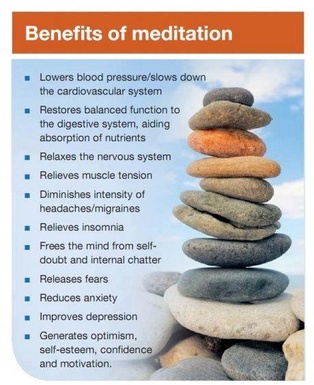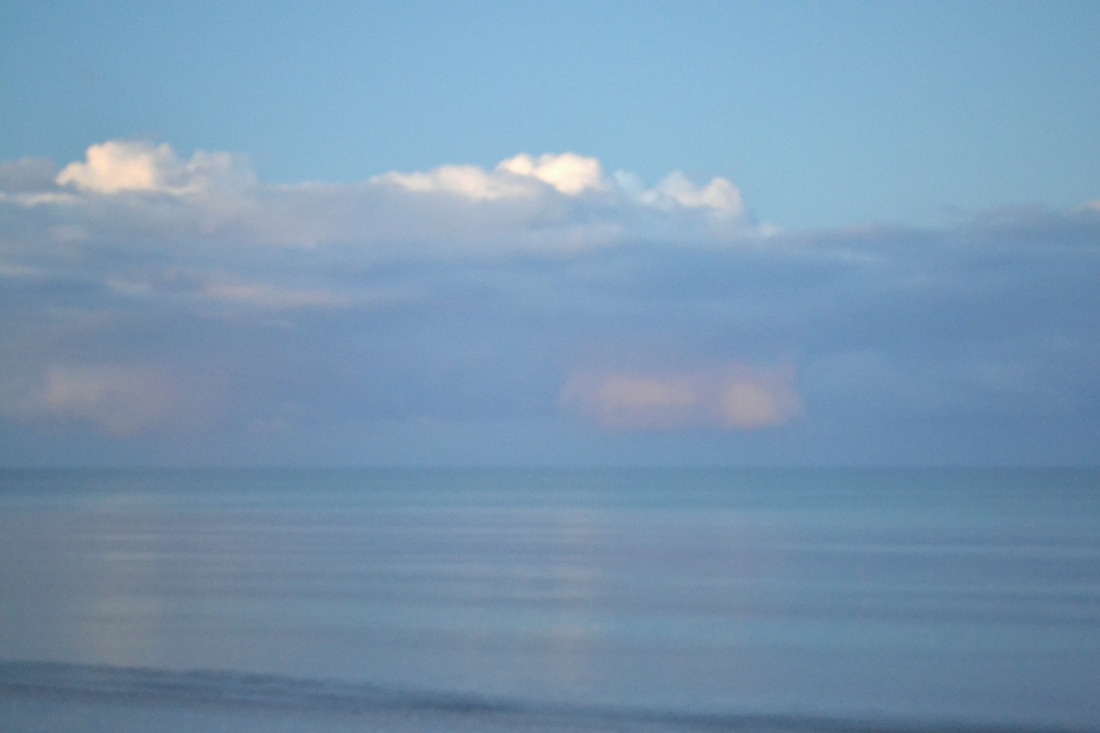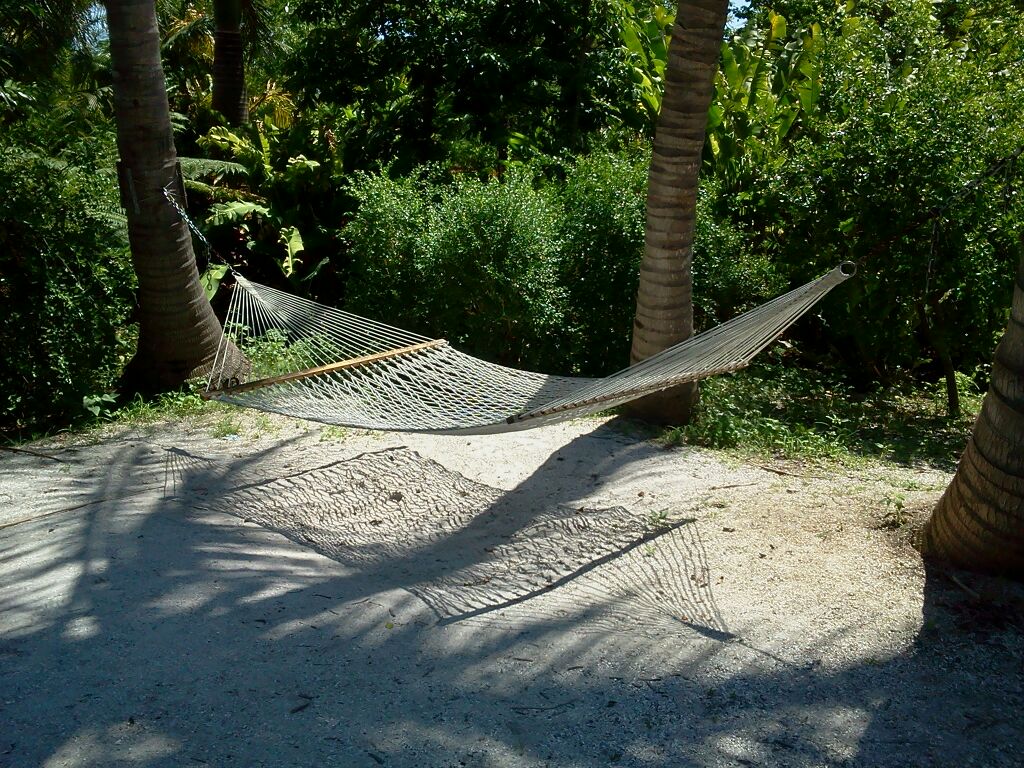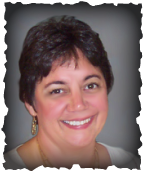|
2/23/2017 Calm and CaringHello all you fabulous caregivers! I've not written in a while, distracted by so many other things they are too numerous to mention. But, I have something truly wonderful and helpful to share with you. I discovered a new app for computer, smartphone and tablet that is soooooooo helpful in reducing stress and creating a calm, relaxed soothing inner peace. It's called, simply, CALM. You can download a free version (on Google play or the Apple App store) and have immediate access to guidance in quieting your thoughts, breathing deeply to still your emotions, and improving your quality of sleep -- and life! There is a more expanded version available for $4.99 a month/year subscription. You can also go to the website and use it on your desktop computer. Check it out at Calm.com. https://calm.com
I highly recommend this excellent tool for sanity and survival as a caregiver. It ranks 5 stars on the sanity saver scale :) Please share it with all your family and friends! 9/21/2015 Today is World Alzheimer's Day - remember those who forget and how to avoid becoming one of themI just read an article published in The Guardian, titled "One Third of People Born in 2015 Will Develop Dementia" and I felt a shiver go through me - a mix of disbelief, dread and then a goodly portion of righteous anger. I think every single human with a beating heart who looks at the statistics, those cold, easy to ignore numbers, and applies them to the babies being born now can't help but cry out that we ALL need to do more to address this health crisis. There is a virtual tsunami of dementia coming if we don't find ways to stop it. It will swamp our healthcare system and there will be no where to escape it.
Research is, of course, necessary, and finally receiving some significant attention. But we can do more than that. Those who are children or caregivers of parents/elders with dementia know personally the devastating consequences that it can bring -- emotional, financial, in family relationships, in health of the caregiver. So, that multiplies the shivers by quite an exponential factor. The truth is, there is almost NO one who is untouched by Alzheimer's in some way: whether it be a parent or grandparent, spouse, aunt or uncle, cousin or friend who is losing their personality and memory in excruciating pieces. Julianne Moore recently put a spotlight on the early-onset form of Alzheimer's in her award-winning performance in the film "Still Alice". And there are various groups vying for funds to support the cause in various ways. But I want to talk about what is within our power, each of us, as individuals, to defeat this disease. There's actually quite a lot that we CAN do, aside from shivering in disbelief. Here are some of the most important, scientifically supported ways you can reduce your own risk of developing Alzheimer's disease:
I'm going to stop here, though I could go on at length. The information is here, on this website and many others. I really implore you all to take your power back and act on that which you CAN control. Type II diabetes is at epidemic proportions, and this is something we can treat and reverse. So today, in honor of World Alzheimer's Day, won't you make a commitment to your own health and happiness by taking some steps to avoid Alzheimer's yourself? Do it for your own benefit and also for those who love and depend on you. Do it for your children to set a good, healthy example for them so they don't become one of the three people who will develop dementia. Whatever reason inspires or motivates you, just do it!  I have written often of the benefits of meditation, particularly when combined with music as a guided meditation experience. Now there is increasing evidence from mainstream medical research of what has been understood for thousands of years by wise teachers of many traditions: meditation is great for people! The truly excellent thing about meditation is that anyone can do it, pretty much anywhere. It is easy, free (or very inexpensive if you choose to buy CDs or download guided versions), is proven as effective as pharmaceutical aids in reducing depression and stress, and has no side effects other than an increased sense of well-being and peacefulness. Click here to see the research done at Johns Hopkins investigating meditation as anti-depressant. What's not to love about that? The Mayo Clinic also published a newsletter article titled "Meditation: A simple, fast way to reduce stress" which gives an great overview of the subject . Various forms of meditation have been taught, mostly in eastern cultures, and the practice has been growing by leaps and bounds in the west over the past thirty years or so. There have been a number of pioneeers in bringing the practice of mindfulness-based stress reduction (MSBR) to the west, including Jon Kabat-Zinn who founded the Stress Reduction Clinic and Center for Mindfulness in Medicine, Health Care, and Society at the University of Massachusetts Medical School. His clinic was featured on the public television series Healing and the Mind with Bill Moyers in 1993. Meditation has such incredible benefits that I believe everyone can find some help by practicing it. In my own experience as a caregiver, meditation and music, combined with fervent and frequent prayer, saved my sanity when it was hanging by a thread. I find it compelling that the list of benefits meditation offers so exactly corresponds to symptoms many (or most) caregivers experience. The only mystery to me is why more caregivers don't use this incredible tool for balance and strength. Which is why I am making it my mission to get this information out to those who need it through this website & blog, by writing, speaking, teaching, and otherwise promoting it. How often is there a perfect solution to so many of our everyday stresses just waiting for us to sit down and get quiet long enough to find its gifts? If you'd like to explore the ideas and resources for meditation, please visit my Meditation and Music page on this site and also take a look at the ideas for Self-care and Caregiver Resource Store. I will also be publishing a book which further details resources and tools for caregivers: Sanity Savers for Caregivers at the End of Their Rope. You can add your name for an announcement of publication, which is targeted for March 2014. If you would like to read a chapter from the book about the uses of music and meditation, click here. I encourage you to explore the idea of various forms of meditation and find what appeals to you personally. In my 17 years of caregiving, music and meditation were the brightest jewels in the caregiver crown. Try it out. You have nothing to lose and so very much to gain! 8/1/2013 Beginnings and open minds"Beginners and outsiders are open to possibilities and don't make assumptions. By extension, they're often better at finding solutions the experts have stopped seeing." I have a great deal of respect and compassion for caregivers. It is a very challenging role, as I have often mentioned here. One of the reasons is that you have to be a "beginner" over and over, each day, each moment -- caregiving requires looking at your situation with new eyes and a fresh perspective, constantly adapting to changes. As I observe caregivers I find the ones who are able to stay in the "beginner's mind" are usually more successful and less stressed because, as the quote above attests, they are better at finding solutions. Try using "beginner's mind" when assessing your own state of mental, physical, & emotional/spiritual wellness and how to adapt it to your unique relationships and care situation. You must trust your own instincts because you know yourself and your situation better than the "experts" do! There is plenty of expert advice about caregiving on the internet, in books and blogs, from doctors, friends and family -- but you know best how, or even whether or not, to apply it to your own life. Trust that inner knowing. Nurture it with whatever techniques appeal and work for you. My personal favorites for this type of nurturing are meditation, music & yoga, but you may find taking a walk in nature, riding your bicycle or going to the beach may work better. Be open. Seek to do what is necessary to stay in an attitude of being a beginner. You may find it's quite enlightening and exhilarating to keep open to new ideas, feelings, possibilities. There is a certain perfection in the present moment for each new "beginning". "When I let go of what I am, I become what I might be." ~Lao Tzu  Are you a family caregiver at the end of your proverbial rope? If the answer is yes, hang on and read on! You have options: 1. You can tie a knot in the end of the rope and hang on for dear life in hopes that some miraculous rescue will occur before your strength gives out and you fall into the abyss of overwhelm, frustration and caregiver burnout below. (I don’t recommend this option, since, in my experience miraculous rescuers are few and I usually go for a more proactive option, anyway. Plus, if you fall and hit the rocks below, it really hurts!) 2. You can tie a noose with the rope and figuratively hang yourself, in essence, giving up your own precious life by giving in to negativity, depression, and despair. By giving up, you shift all responsibility for caregiving to someone else and abdicate your role. (I certainly don’t recommend this option, since I believe whole-heartedly in Life with a capital “L” and that love has amazing powers to heal and keep us whole! But you would be surprised how many people choose this) 3. You can swing on the rope trying to clear the canyon of caregiver destruction beneath you and get on solid ground. (This is a marginally better choice than #1 or #2, but still doesn’t work for me) 4. You can use the rope to make a hammock of support beneath you – a place you can relax, rest and renew your strength, inner resources, and commitment to the caregiving journey. Eventually, your rope hammock can become a rope bridge allowing you to safely navigate across the caregiver chasm and keep your life and sanity in the process. (Now, I admit I am biased, but this is the one I would choose.) This post is an excerpt from my soon-to-be-published ebook, which provides practical tips and gentle self-care and self-nurturing techniques to make life less of a struggle and more of a loving learning experience. If you are tired of struggling and dangling your way through the uncertainties of caregiving, please sign up to receive a release notice when Sanity Savers: For Caregivers at the End of Their Rope is published. Find support for a more balanced, healthy, life-enhancing approach to giving care – a hopeful, positive way that includes you along with your care-receiver. |
About Karen
Karen is a compassionate, enthusiastic student of life, who cared for her mother for 17 years. She brings her insights, compassion, experience and desire to share knowledge and healing to this ongoing conversation with others on the caregiving path. If you are caring for a parent, spouse, friend or other loved one this site offers sanity-saving tips, open-hearted self-care ideas, and an open forum for discussion, connection and sharing resources for the journey. Archives
October 2021
CategoriesAll Acceptance Aging Together Alan Cohen Alive Inside Movie Alzheimer's Alzheimer's Prevention A Mind Of Your Own Anxiety Aromatherapy Audio Therapy For PTSD Austin Air Hepa Filter Autism Back Care Video Beginner's Mind Being Present Blessing For Caregivers Books Brain Insulin Butterfly Story Calm Calm.com App Care For Veterans Caregiver Advocate Caregiver Coalition Caregiver Comfort Kit Caregiver Guilt Caregiver Retreat Caregiver's Serenity Prayer Caregiver Stress Caregiver Support Care Giving Caregiving Vulnerability Care In Hospital Caterpillar Into Butterflies Chamomile Tea Cindy Laverty Comedian Computers & Exercise Crisis Dan Cohen Deepak Chopra Delirium Depression Diabetes Disaster Preparedness Distractions Dr. Dharma Singh Khalsa Dr. Oliver Sacks Eden Alternative Eldershire Elizabeth Dole Foundation Emergency Planning Emergency Preparation Emerson End Of Caregiving Enough Already Escapism Essential Oils Food Safety Forgiveness Funny Stories Gaiam.com Gail Sheehy Gift Of Alzheimer Gift Of Healing Presence GMO Food Green House Project Gregory Fricchione Md Grief Guilt Happy Light Healing Holding Hands Home As Sanctuary Hope Hospital Caregiving Hospital Stay Humor Inspirational Reading Ipods For Nursing Homes Isolation Jacksonville James E. Miller John Denver Johns Hopkins Study John T. McFadden Jon Kabat-Zinn Kelly Brogan Kirtan Kriya Meditation Lao Tzu Laugh Laughter Lavender Loneliness Loss Of Purpose Love Love In The Nursing Home Maya Angelou Mayo Clinic Mayo Clinic Alzheimer's Blog MD Meditation Meditation Garden Melatonin Memory Memory Cafe Military Caregiver Mindfulness Meditation Mr. Bean Music Music & Alzheimer Music And Memory Neurological Research Noise Pollution Operation Family Caregiver Opportunity Overnight Respite Care Pandemic Passages In Caregiving Patience Paul Coelho Peace Post-traumatic Stress Disorder Power Of Love Prayer PTSD Quality Of Sleep Radical Contentment Relaxation Releasing Problems Renewal Research Respite Rewind Rodney Yee Rosalynn Carter Rosalynn Carter Institute For Caregiving Rowan Atkinson Sanctuary Sanity Self Care Serenity Silence Sleep Slowing Time Solutions Soothing Music Stress Stress Relief Sun Sunshine Support For Caregivers Tai Chi Thanksgiving The Care Company The Kiss Time Traumatic Brain Injury Travel With Alzheimer's Person Treat VA Caregivers Valentine's Day Verilux Veteran Farms Veterans Veteran Suicide Vitamin D Wayne W. Dyer Wellness Wendell Berry White Noise William H. Thomas Worry Yoga Yoga Video |





